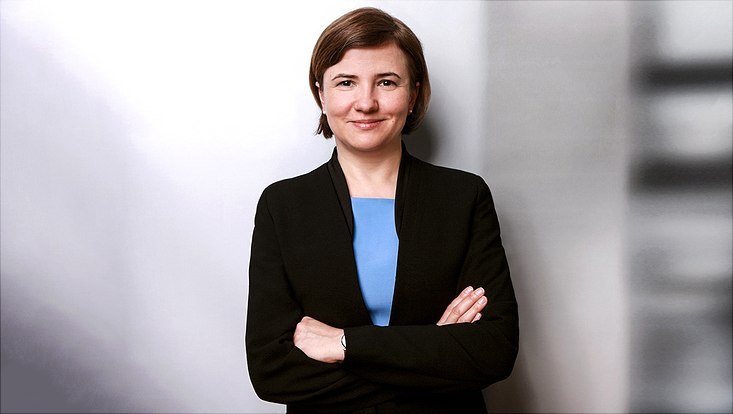7 December 2018
Innovative research on new materialsERC Consolidator Grant for physicist at Universität Hamburg

Photo: Carina Häusler
Colloids are particles that are finely distributed in liquid. They may only be measurable in nano- or micrometers but today their significance is huge in a range of applications in several areas, including the food and cosmetics industries, solar cells, and energy storage. Modern X-Ray light sources such as the European XFEL are perfectly suited to the investigation of chemical compound reactions and structures. However, hard radiation destroys colloidal nanomaterials. Furthermore, current methods of handling liquid samples in X-Ray spectroscopy cannot be used for these chemical reactions.
Prof. Dr. Koziej wants to solve these problems in her LINCHPIN project. The goal is to develop innovative micro-reactors that will allow researchers to analyze colloidal nanomaterials using non-destructive radiation methods. The ERC project will focus on the principles of nanomaterials formation using hitherto unequaled precision. “Our long-term goal is to use our findings to design innovative, 2-dimensional materials with the most promising electronic properties that we could use, for example, in energy conversion and energy storage,” said Koziej.
Prof. Dr. Dr. h.c. Dieter Lenzen congratulated Prof. Koziej: “I congratulate Prof. Dr. Koziej on this enormous success and I am delighted that Universität Hamburg’s strong nanosciences were so compelling in this challenging European competition.”
With the Consolidator Grant, the ERC funds excellent young researchers’ potentially groundbreaking research projects for up to 5 years. These researchers must have completed their doctoral studies within the last 7–12 years, established themselves, and yet still find themselves at the beginning of their academic careers. Koziej completed her studies at the Silesian University of Technology in Poland and received her doctorate from the Eberhard-Karls-Universität in Tübingen and the Silesian University of Technology. After she received her doctorate, she worked as a postdoctoral researcher at ETZ Zürich in Switzerland and Harvard University in the United States. At Universität Hamburg Koziej has been Professor of Experimental Physics with a focus on hybrid nanomaterials since 2017.
